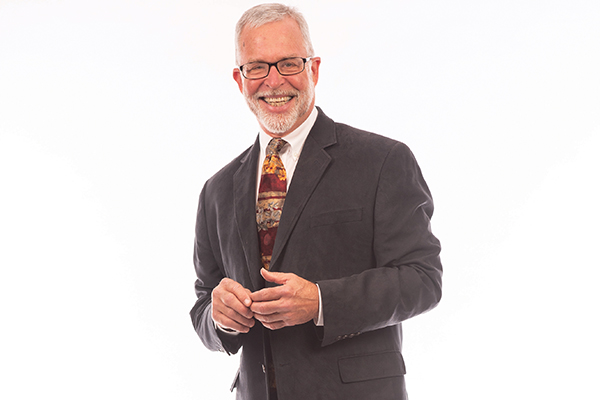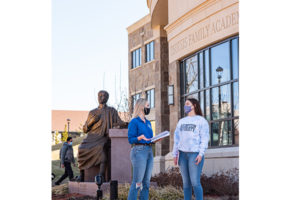Patrick Corrigan, Ph.D.
Associate Professor of Philosophy and Director of Assumption’s Rome Program
 Education
Education
Ph.D., The Catholic University of America, 1996
M.A., The University of Texas at Austin, 1980
B.A., The Catholic University of America, 1977
Classes Taught at Assumption:
Aristotle’s Nicomachean Ethics
Foundations of the West: Philosophy & Religion I-II
God and the Philosophers
Human Nature
Hume’s Essays and Enquiries
How Philosophers Begin
Trials and Deaths of Socrates and Jesus
When did you discover an interest in philosophy?
In my junior year of high school, I took a course on the thought of Pierre Teilhard de Chardin, a 20th-century Jesuit theologian, paleontologist, and philosopher. At the time, I had no idea that there were thinkers, much less that it was possible to major in philosophy. That’s when I decided on a philosophy major, and I have been very fortunate to be able to continue to pursue it.
What is interesting about you that would surprise your students?
I have not had a TV since the mid-1990s. I got rid of my TV because I watched it too much; it was sucking up too much of my time and not enhancing my life. Remarkably, there have been relatively few times that I’ve missed it.
If you weren’t a philosophy professor, what career would you have pursued?
I would have become a high school teacher –of religion or literature.
What do you appreciate most about the subject of philosophy?
The opportunity and challenge to go back to the beginning and think again about what I’ve taken for granted.
How do your philosophy classes enhance the College’s Rome campus experience?
My students in Rome are remarkably busy and active. The kind of ‘slow pondering of familiar things’ that is philosophy does not fit with their lives here. In the reading together of classical books, I hope to expose them to and give some experience with a way of thinking which they will be able to apply when they return to the U.S.
How do you inspire students who might not find interest in philosophy?
If I do at all, it may be by showing them my excitement about and dedication to trying to understand things better – being willing to attend to what I’ve hitherto overlooked and taken for granted, being willing to take seriously what I recognize that I do not understand, and enjoying engaging with others (dead and alive) as the way to make progress.
Why is philosophy integral to a student’s academic journey?
The goal of all education is to make us more self-responsible, free, and actualized human beings. Philosophy courses can contribute to this by making us more aware of the fundamental ideas/beliefs that we have inauthentically acquired as we have grown up and by helping us become more thoughtful about those beliefs. We organize our lives according to understandings of what it is to be human, how the world works, living well, God, etc. By the time we’re in college, we have a number of different understandings of these things, we live according to varying mixes of those ideas, and we’ve never noticed that we’re taking them for granted. Philosophy courses give students the opportunity to notice the things they’ve taken for granted and to start to think about them (rather than thoughtlessly use them).


